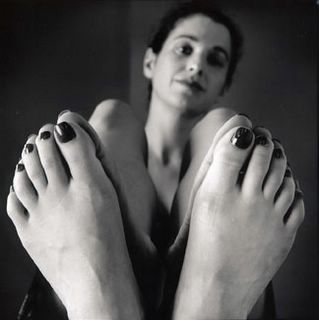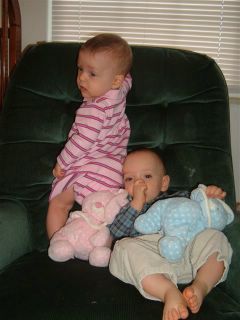Mama, God, and Jane Austen
But seriously, I would like to apologize to everyone for my attitude the past, well, couple weeks, or months, or maybe longer. I'm sorry for being self-centered and for whining too much. Roommates, I'm sorry for being a slob. Team and community group, I'm sorry for whining about the same cold that the rest of Madrid has had as well as me. Family, I'm sorry for not calling as much as I had been.
The past few days, I feel like I've turned a corner, started to climb out of a slump, woken up, or whatever you want to call it. I was talking to Heather today, and I dubbed it "attitude adjustment," which I think is pretty accurate.
When I was a kid and got in a funk, my mom used to tell me to "put my nose on straight." To be honest, I never understood what that meant. I don't think she was too philosophical about it, but blogs are the home of wanna be philosophers, so here I go: when my nose is not on straight, everything is slightly skewed. Picasso comes to mind--things are grotesque and out of proportion. Now that's cool in art, but in my emotions and mind it has caused things to get messy. A nasty cold that lingers on and on becomes the end of the world, and everyone hears about it over and over. Needing a few hours of alone time becomes a need to be sullen and withdraw, and politeness and hospitality fall short in the name of self-preservation. Being busy becomes an obsession swinging between work and rest, and neither are really acheived. Things become skewed; everything becomes out of proportion.
So, Mama, my nose is straightening.
The past week, I've started doing the daily office and readings from Celtic Daily Prayer, and following their scripture readings for each day. It's really meditative and very Christ focused, rather than me focused. This is a nice change from the past year or so, which is measured out in short intervals between temper tantrums with God. I've learned alot this year, but I've fought every lesson tooth and nail--when I look at what's written in my journal, it makes me think of Harry Potter in Dumbledore's office after a disaster, smashing stuff and yelling, while Dumbledore sits quietly and lets him finish. I think God has been sitting quietly and letting me finish, letting me get it all out.
One thing I love about Celtic Daily Prayer is that the passages are really short, and there's no rush--there's time to really meditate on the scripture and let it sink in. Earlier this week, I read part of Psalm 31, and the phrase "my times are in your hands" has stuck out to me all week. All of this stuff I whine about is in God's hands. What if I really took that seriously and let it sink in? How much would that change my attitude?
So God, I think I'm done. The tantrum's over. I'm ready to listen. My times are in Your hands.
I've been on a Jane Austen kick lately. I just finished reading Sense and Sensibility, and I love Elinor's politeness to everyone. She doesn't inflict her suffering on anyone. She's nice even to her enemies, and the people who are spiteful to her. She has every reason to whine and just doesn't.
So, Jane Austen, thanks for the example. I'll try.
I cleaned my desk.
I cleaned my room.
I made my bed.
I hung my pictures.
I finished unpacking those 2 boxes that have been staring at me since november.
I cleaned the toilet.
I worshipped.
I opened windows.
I feel better.
This week, this day, I will think about someone other than myself. I will practice hospitality without resentment. I will work when I should work, and really rest when it's time. I will be thankful for the million things I have to be thankful for.
I will put my nose on straight.




















